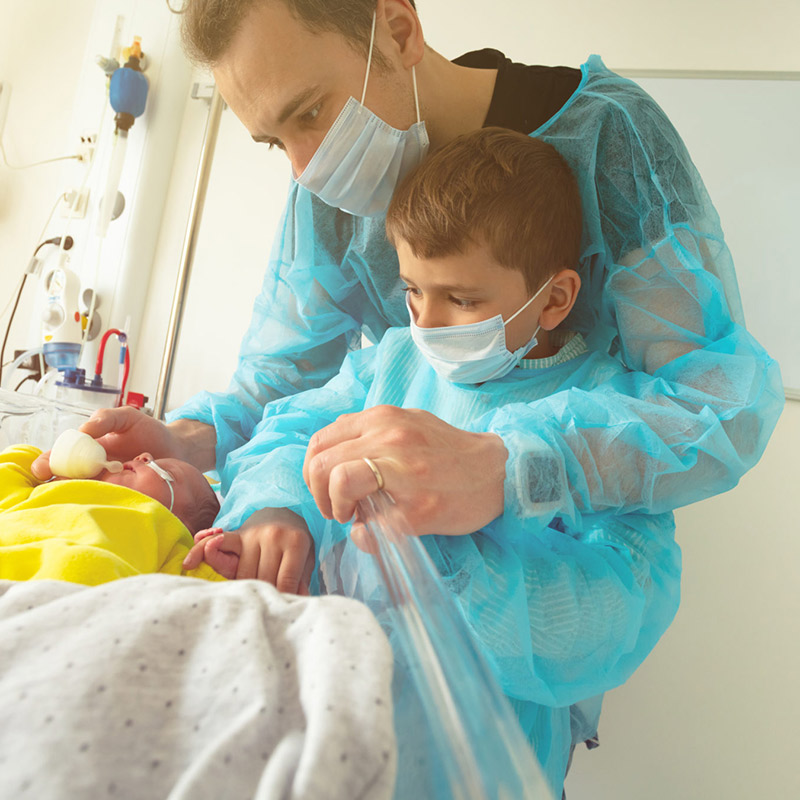What Cancers Can Be Caused By HPV?

August 24, 2021
Many viruses out there can cause a host of symptoms and conditions, including colds and the flu. But, most people are able to overcome viral infections in a couple days to 2 weeks.
There are other viruses like human papillomavirus (HPV), a very common sexually transmitted disease, that could cause long-term health problems, including cancer. Only about a dozen of the more than 200 known strains of HPV carry the potential to cause cancer.
“HPV is probably the most common sexually transmitted disease which a lot of people don’t know about,” says Tracy Proverbs-Singh, M.D., a gastrointestinal oncologist at Hackensack University Medical Center. “It can remain latent in the body for a lifetime.”
Most sexually active people have been exposed to HPV and many times it’s harmless and goes away on its own. Commonly, people will not experience any symptoms at all until it’s already caused a health problem.
Talking to your doctor and having regular checkups can help find abnormal changes in your health before turning into something serious. Some types of HPV, called high-risk HPV, can lead to cancer. The cancer most commonly associated with HPV is cervical cancer.
“Ninety percent of cervix cancers are found to have HPV in their DNA,” says Karim ElSahwi, MD, FACOG, FACS, attending gynecologic oncologist at Jersey Shore University Medical Center.
Gynecologists use a Pap test to screen for the presence of HPV in the cervix. They may find cervical cancer early, when it’s most easily treated, or even when it’s at a pre-cancerous stage.
Symptoms like unexplained vaginal bleeding and pain during sexual intercourse may be signs of cervical cancer, so see your doctor for evaluation if you experience these problems.
HPV may also cause these cancers:
- Vulvar and vaginal cancer
- Anal cancer
- Penile cancer
- Oral cancers
About 90 percent of anal cancer is caused by HPV. It’s more prevalent in women than men, but men who have sex with men are at high risk.
“Anal intercourse increases the risk, but a patient could have never had anal intercourse and still get anal cancer,” Proverbs-Singh says. “Being a latent virus, it can show up in any part of the body.”
There are no official screening guidelines for anal cancer, but those at high risk may benefit from an annual anal Pap test to check for the presence of HPV.
Symptoms like anal bleeding, pain, pressure or a feeling of fullness in the anal area may signify cancer. If you have any of these symptoms, you should talk to your doctor immediately.
What can you do to protect yourself?
You can get HPV by having vaginal, anal, or oral sex with someone who has the virus. It is most commonly spread during vaginal or anal sex. It’s important to know that HPV can be passed even when an infected person has no signs or symptoms.
Anyone who is sexually active can get HPV, and you can develop symptoms years after you have sex with someone who is infected. Using condoms every time you have sex can help reduce the risk. However, are not as effective against HPV as they are against other STDs like chlamydia and HIV.
See your doctor if you notice any changes or problems, such as:
- anal, vaginal or vulvar, bleeding
- vaginal or vulvar itching, pain or sores that don’t heal
- bleeding after sexual intercourse
- mouth sores that don’t heal
- skin changes, lumps or swelling at the end of the penis
- a thickening or discoloration of the skin inside the mouth
- changes in swallowing or the sound of your voice
The HPV vaccine
A vaccine can provide protection against the most common types of HPV which cause cancer and genital warts. The vaccine is less effective once you’re sexually active, because you’ll probably have come in contact with HPV already.
For this reason, the vaccine is recommended for children aged 11 and 12, to give them protection before being exposed to the viruses.
“Getting the vaccine and preventing the infection decreases the risk of cancer dramatically, because over 90 percent of the strains that could cause cancer are represented,” Proverbs-Singh says.
The material provided through HealthU is intended to be used as general information only and should not replace the advice of your physician. Always consult your physician for individual care.
Find a doctor near me
4 Ways You Can Help NICU Parents

If someone you know has a child in the NICU, here's how to help.
The Numbers Behind Parkinson's Disease

Parkinson's disease is a neurodegenerative disorder that affects the production of dopamine in the brain.
Find a doctor near me

PCOS vs. Endometriosis
Although PCOS and endometriosis both affect female reproduction and can cause infertility, they are distinctly different.

The Numbers Behind Parkinson's Disease
Parkinson's disease is a neurodegenerative disorder that affects the production of dopamine in the brain.

How to Beat Brain Fog
Brain fog can be caused by lack of sleep, increased stress, certain foods in your diet or, in some cases, a medication or medical condition. Regardless of the source of brain fog, here's how you can help combat it.

Five Tips for a Healthier Workout
Three of our cardiologists share how to fit heart healthy exercise into even the busiest schedules.
